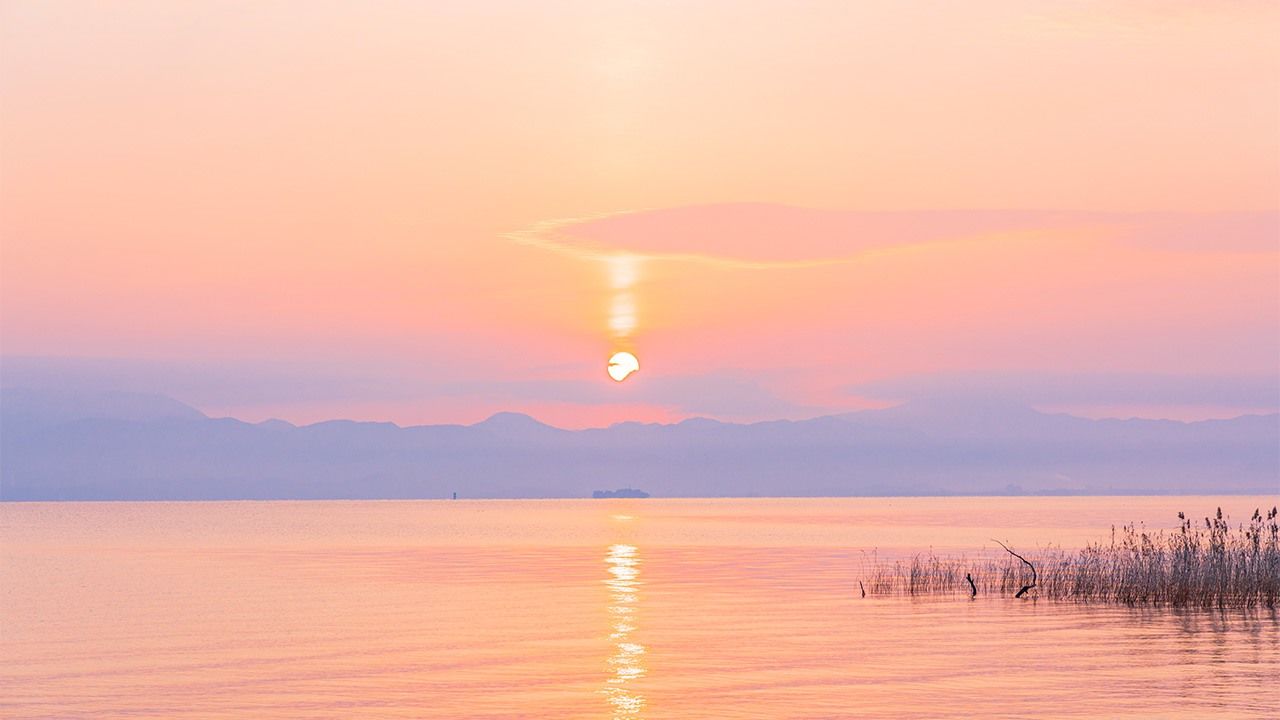
A Journey Through Japanese Haiku
A Lake Farewell to Spring
Culture Environment Lifestyle- English
- 日本語
- 简体字
- 繁體字
- Français
- Español
- العربية
- Русский
行春を近江の人とおしみける 芭蕉
Yuku haru o / Ōmi no hito to / oshimikeru
Lamenting
spring’s passing with
the people of Ōmi.(Poem by Bashō, written in 1690.)
The placename Ōmi here refers to what is now Shiga Prefecture. Included in this is the Ōmi Sea, another name for Lake Biwa in the center of the province. The haiku is included in the collection Sarumino (The Monkey’s Raincoat) with a note saying Bashō composed it while looking out over the lake; in another extant version on a kaishi (special poetry paper), the note says the bard created it while floating in a boat on the lake.
Bashō’s disciple Mukai Kyorai wrote later of commenting to the haiku master that the hazy lake scenery matched perfectly with the feeling of regretting spring’s passing. Bashō replied that for people of past times, Ōmi was as important a location for appreciating spring as Kyoto, his mind’s eye considering the lake and season through the lens of classical traditions.
Bashō was probably thinking of this waka by Fujiwara no Yoshitsune from the thirteenth-century Shin Kokin Wakashū collection: Asu yori wa / Shiga no hanazono / mare ni dani / tareka wa towan / haru no furusato (From tomorrow / few even will come / to the flower gardens of Shiga— / who will visit / spring’s former capital?). Shiga was a placename on the western shore of Lake Biwa and had even once been the location for the capital of Japan. The poem says that when summer begins tomorrow, there will be hardly any visitors to Shiga’s gardens, blending sadness over the end of spring with reminiscing for the past. Just as this waka appeared last in the “spring” section of Shin Kokin Wakashū, Bashō placed his own haiku last in the corresponding section in his own collection.
(Originally published in Japanese. Banner photo © Pixta.)
Japanese inn literature haiku Matsuo Bashō Japanese language and literature